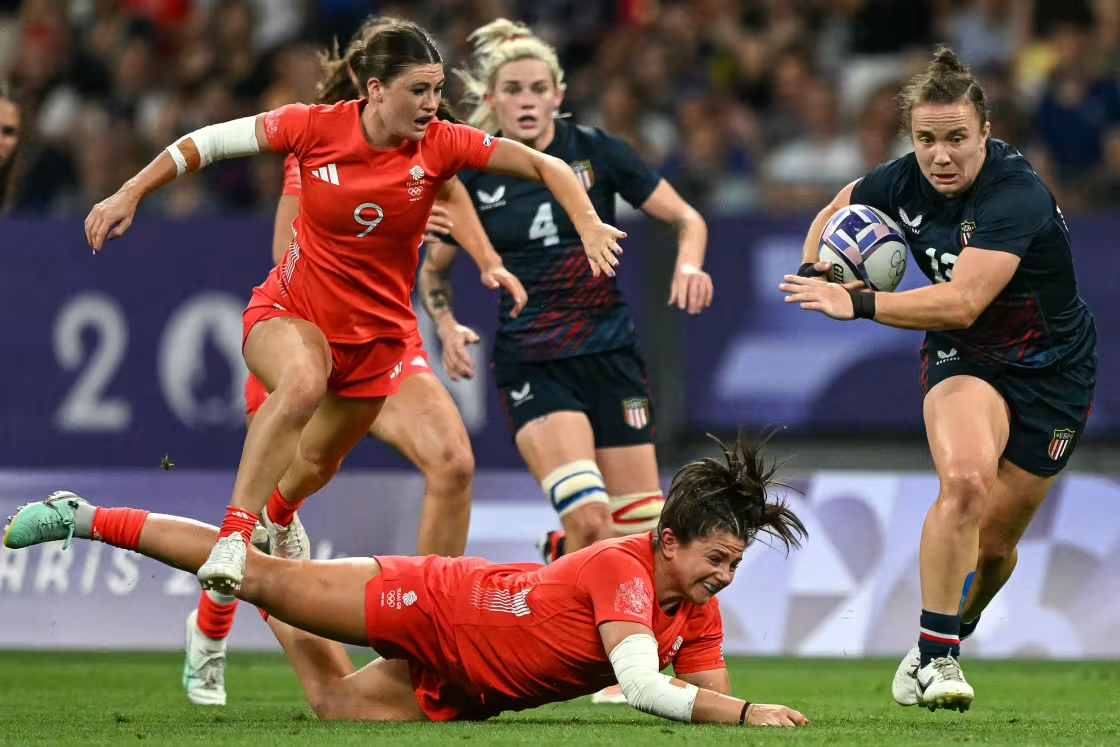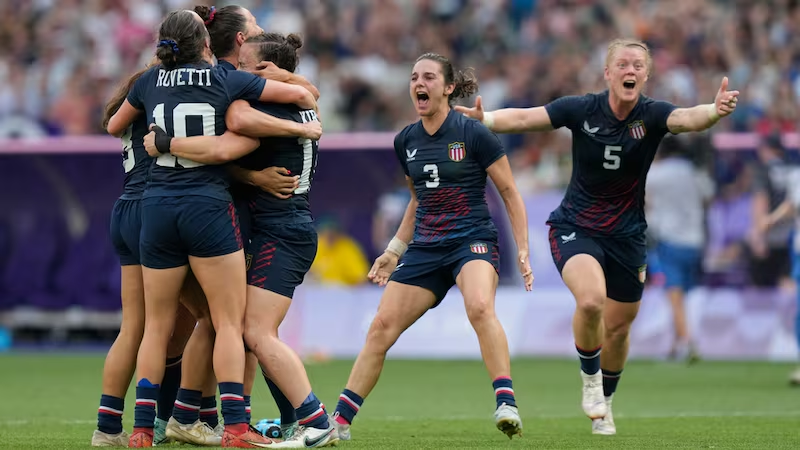The U.S. women’s rugby sevens team has shocked the rugby world by winning a bronze medal at the Olympics, defeating 2016 gold medalists Australia in a dramatic 14-12 victory. This marks the first medal in the sport for U.S. women, achieved through a last-second play by Salt Lake City native Alex “Spiff” Sedrick.

Kristi Kirshe, a U.S. player, told NBC News on Wednesday, “Yeah it’s a little crazy, huh? It’s kind of still surreal. I don’t think it’s really fully sunk in yet. We’re all excited and kind of just feeling the gravity of it all.”
Unlike their competitors from rugby powerhouses like New Zealand and Australia, most of the U.S. team members came to the sport later in life. U.S. captain Naya Tapper, for instance, discovered rugby as a freshman at the University of North Carolina through a club team. Now, at 30, the former high school track standout wears an Olympic medal.

“Outrageous,” Tapper said, reflecting on the program’s rapid progress. “If I would have found it now, with how much the sport has grown, I wouldn’t have gotten on to the team. I’m very grateful for the way the timing worked out.”
The U.S. roster is filled with athletes who excelled in other sports before transitioning to rugby. Alev Kelter, 33, played hockey at Wisconsin. Stephanie Rovetti was an elite high school sprinter and played basketball for BYU. Kirshe, 29, was a Division III soccer standout and didn’t start rugby until she was 23.
Despite rugby not being a mainstream sport in the U.S. – it’s not played as an interscholastic championship sport in any state – Tapper believes the country can become a world player. She cited the combination of talent and intelligence in American athletes as key factors.

“With that combination, if we can teach somebody how to play a certain sport and give them a year or two to figure out the skills aspect, as you can see from our team of crossover athletes, you can get the success you want, at the same level with teams that can start when they’re very young,” Tapper said.
Kirshe hopes their success will inspire more young girls to consider rugby. “That’s something we talk about all the time,” she said. “It’s just like, bringing such an amazing sport to little girls around the country. Look at our team of all shapes and sizes and everyone has their role on the field. So I hope that little girls at home see all of us and say, ‘Hey, I want to be a powerful woman like that someday.'”
This unexpected Olympic success could mark a turning point for rugby in the United States, potentially attracting more athletes to the sport and raising its profile among American sports fans.
Source: NBC News



